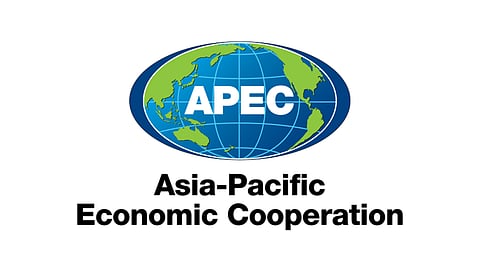
- NEWS
- the EDIT
- COMMENTARY
- BUSINESS
- LIFE
- SHOW
- ACTION
- GLOBAL GOALS
- SNAPS
- DYARYO TIRADA
- MORE

With the end of the cold war, simmering tensions were unleashed in some parts of the world with tragic results. Cross border and civil wars erupted, genocide and ethnic cleansing common place.
Member-countries of the Association of Southeast Asian Nations were as diverse or even more diverse than the countries in regions that suffered terribly at that time. Southeast Asia was no stranger to armed conflict: It was where one of the bloodiest proxy battles of the cold war was fought.
ASEAN members realized that concerted action had to be taken to head off the possibility of conflict and to establish peace and security as firm foundations for regional growth and prosperity in the post-Cold War era.
On the political front, ASEAN created the ASEAN Regional Forum, where ASEAN countries and other stakeholders in the Asia-Pacific region could work together on peace and security. It first met in Bangkok in 1994.
On the economic front, ASEAN and regional stakeholders created APEC, the Asia Pacific Economic Forum. Its leaders first gathered in Seattle in 1993.
For almost 30 years, APEC has contributed to the ASEAN economic miracle and the growth and prosperity in the broader Asia Pacific region.
APEC did this by focusing on economic and sectoral cooperation. It was seldom distracted by political issues, allowing it to concentrate on its work. There were always political undertones present, as politics is often difficult to avoid, but these were not allowed to interfere in the work of APEC.
Even when things became very political after 9/11, APEC was able to continue with its work, while at the same time addressing the very real threat of terrorism by adopting a counterterrorism and secure trade strategy.
Although APEC focused on economic cooperation, it has always recognized that vibrant economic cooperation and meaningful prosperity are only possible if there is peace and security. This sentiment is consistently reflected in key APEC consensus documents.
This important work of APEC is being placed in jeopardy by the conflict in Ukraine.
APEC gatherings should be open enough for members to voice their concerns over global events, particularly if they believe that these events have some bearing on the work of APEC. There are no hard and fast rules on how members are supposed to perceive things.
What is clear is that those who feel they are unfairly portrayed always have the opportunity to respond and be heard by everyone in the room. After these exchanges, everyone is supposed to get back to work, no matter how uncomfortable they may have felt during these exchanges. After all, those directly involved in these exchanges can continue to discuss their differences outside the meeting room and involve anyone who wishes to listen.
This dynamic has been changed by the deep divisions caused by Russia's "special military action" in Ukraine, which has been condemned by the vast majority of United Nations members, including the Philippines.
Not unexpectedly, those opposed to Russia's actions have made their feelings known in the meetings of APEC, including those in preparation tasks for the APEC Leaders Meeting in November in Bangkok.
The issue of the conflict in Ukraine has been so divisive that it has effectively led to a failure to achieve consensus on every single document thus far — something that has never happened before in APEC.
Those opposed to bringing the conflict in Ukraine into APEC have responded in an extreme manner: They now want to remove any reference to peace and security in future discussions and documents.
By doing so, they hope to immunize APEC from being plagued by political issues.
Their efforts are understandable and in a sense even noble, seeking to keep APEC pure and pristine, undistracted by global political events, no matter how dire or compelling.
This serious disagreement will cause further fissures and divisions in APEC, raising the prospect of lasting damage.
It is not too late to work things out. Political issues may be discussed as long as they relate to the work of APEC. Those affected should always be allowed to present their side. Consensus on the economic work of APEC should not be blocked over disagreements on political issues or events halfway across the globe. Peace and security should remain the bedrock of economic growth and prosperity.
Thailand, this year's APEC chair, has been doing a great job under very difficult circumstances. Many individual member economies have also been hard at work to try to prevent an escalation. The parties concerned need to be able to sit down and work through their political disagreements and allow APEC to continue with its important tasks and prevent APEC from becoming a casualty of a war in Europe.
***
Carlos D. Sorreta is Undersecretary for Multilateral Affairs and International Economic Relations at the Department of Foreign Affairs.
